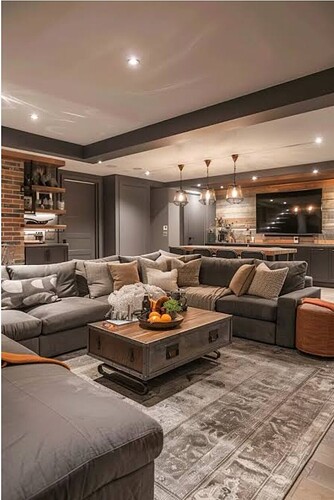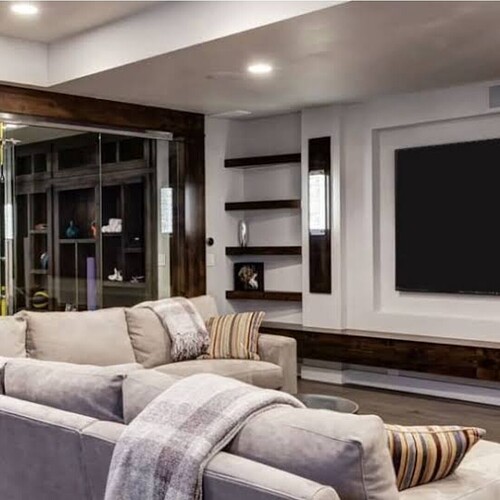For many homeowners, the basement is often overlooked or relegated to storage. Yet, with the right design and renovation approach, a basement can transform into one of the most versatile and valuable spaces in a home. Whether you envision a cozy family room, a guest suite, a home office, or even a rental unit, basement renovations can maximize your property’s potential while significantly boosting its value.
Assessing the Space
The first step in any basement renovation is evaluating the existing condition. Factors such as ceiling height, natural light, ventilation, and moisture control play a major role in determining how the space can be used. Older basements may need structural reinforcement, updated plumbing, or waterproofing before cosmetic improvements can begin. Addressing these foundational issues early ensures a safe and durable outcome.
Waterproofing and Insulation
Moisture is the most common issue in basements. Waterproofing measures such as sealing walls, installing sump pumps, and adding vapor barriers can protect the space from dampness. Proper insulation not only improves comfort but also reduces energy costs. Spray foam or rigid insulation panels are particularly effective in basement environments because they resist mold growth.
Design Possibilities
One of the most appealing aspects of basement renovations is their flexibility. Homeowners can adapt the space to meet specific needs:
Family or Media Room: A perfect spot for a large-screen television, comfortable seating, and built-in shelving.
Home Gym or Wellness Area: With proper flooring and ventilation, a basement can house fitness equipment, a yoga studio, or even a sauna.
Guest Suite or Rental Unit: Adding a bathroom and kitchenette can turn the basement into a self-contained living area. This option can also generate rental income if local zoning permits.
Home Office or Creative Studio: Quiet and separate from the rest of the house, basements are excellent for focused work or artistic pursuits.
Lighting and Layout
Basements naturally lack sunlight, so smart lighting solutions are essential. Recessed lighting, wall sconces, and strategically placed mirrors can brighten the space. If possible, adding egress windows or walkout doors not only increases natural light but also enhances safety. An open layout can make basements feel less confined, while partitions or sliding doors allow for multifunctional zones.
Flooring Choices
Because basements are prone to moisture, flooring materials must be carefully chosen. Options such as luxury vinyl planks, ceramic tile, or engineered hardwood are durable and water-resistant. Area rugs can be layered for comfort without risking damage from potential dampness.
Permits and Safety
Before starting a basement renovation, it’s important to check local building codes. Features like ceiling height, emergency exits, and electrical systems must meet safety regulations. Hiring experienced contractors familiar with basement projects ensures compliance and quality.
Return on Investment
Basement renovations often deliver strong returns. A well-finished basement can increase usable square footage significantly, making a home more appealing to potential buyers. Even if resale isn’t a near-term goal, the added functionality provides everyday benefits.
Conclusion
Transforming a basement from a neglected storage area into a livable, stylish space is one of the most rewarding renovation projects. With careful planning, proper waterproofing, and thoughtful design, homeowners can unlock an entirely new level of comfort, versatility, and value within their homes.

